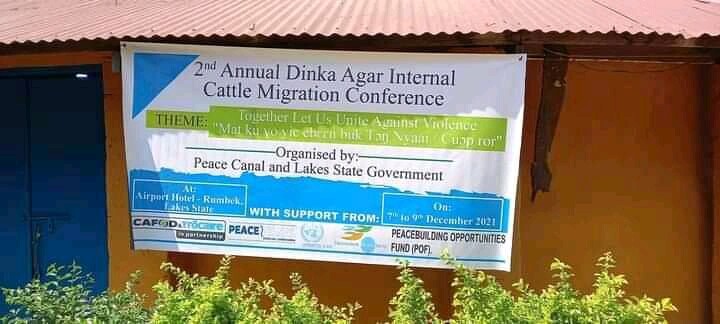A two-day internal cattle migration conference for the Agar Dinka and Beli communities concluded in Rumbek of Lakes State with agreements to ban the sale and consumption of local brews, a resolution to stop cattle rustling, and the surrendering of arms to chiefs before migration.
According to the participants, alcohol consumption, cattle rustling, and armed cattle herding contribute to insecurity in the region. The chiefs, community leaders, and government officials from Rumbek Centre, Rumbek North, Rumbek East, and Wulu counties signed 27 resolutions.
Speaking to Radio Tamazuj on Thursday, Lakes State deputy governor Poth Madit Dut said the state government has approved the resolutions.
“I approve all the 27 resolutions that were passed and signed after the conference. The government signed resolutions and will be committed to implementing them,” he said. “I did stress on implementing some key aspects of the resolutions and one of them which has been identified by the state government as one of the key contributing factors to insecurity is alcohol.”
Madit said they have resolved to ban the sale and consumption of local brews and those found drunk should be arrested.
“I have issued an order to security forces to arrest anybody who is found drunk at any corner in any town in Lakes State and they should lead the security to where these local brews are made,” he added.
On the issue of cattle theft, Madit said: “I have issued an order that anyone caught stealing a cow is subject to the fine of five cows to return that single stolen cow. This person should be detained and sent to a competent court of law to answer the crimes because cattle theft, cattle raidings, inter-communal fighting, any form of insecurity is prohibited across Lakes State.”
According to the deputy governor, disarmament came out strongly as a necessary measure to maintain peace during cattle migration.
“Everybody has agreed, the chiefs and government officials have agreed that guns must be handed over to the government and this is a prerequisite to cattle migrations to Lol-Manyiel’s Toich grazing wetlands which is the common grazing land of Agar people,” Madit said.
The state official said a committee to be headed by the minister of local government, with the four-county commissioners and the minister of peacebuilding and social cohesion as members, will be formed by the government to monitor the enforcement of the resolutions.
He further called on peace partners to expand their scope of work to include areas not covered by this particular conference saying cattle migration is a nationwide concern.
For his part, the state minister of local government and law enforcement agencies Benjamin Makuer Mabor said, he was ready to implement the conference resolutions with the support of county commissioners and the organized forces.
“I will immediately take up this mission as a challenge and we are going to do our best. We want to see into it that migration to cattle camps is executed in a better manner and in a peaceful way,” he said. “Of course, there are going to be some challenges but I will be in a position to tackle them in terms of logistics and also in conjunction with our partners who are the peace lovers. We are going to convene our own challenges and present them to the leadership of the state.”
He urged the communities to accept the culture of peace and called those who deserted schools for the cattle camps to return to school and continue with their education.
The conference was supported by the national Peacebuilding Opportunities Fund (POF) and the UNMISS Civil Affairs Division.




